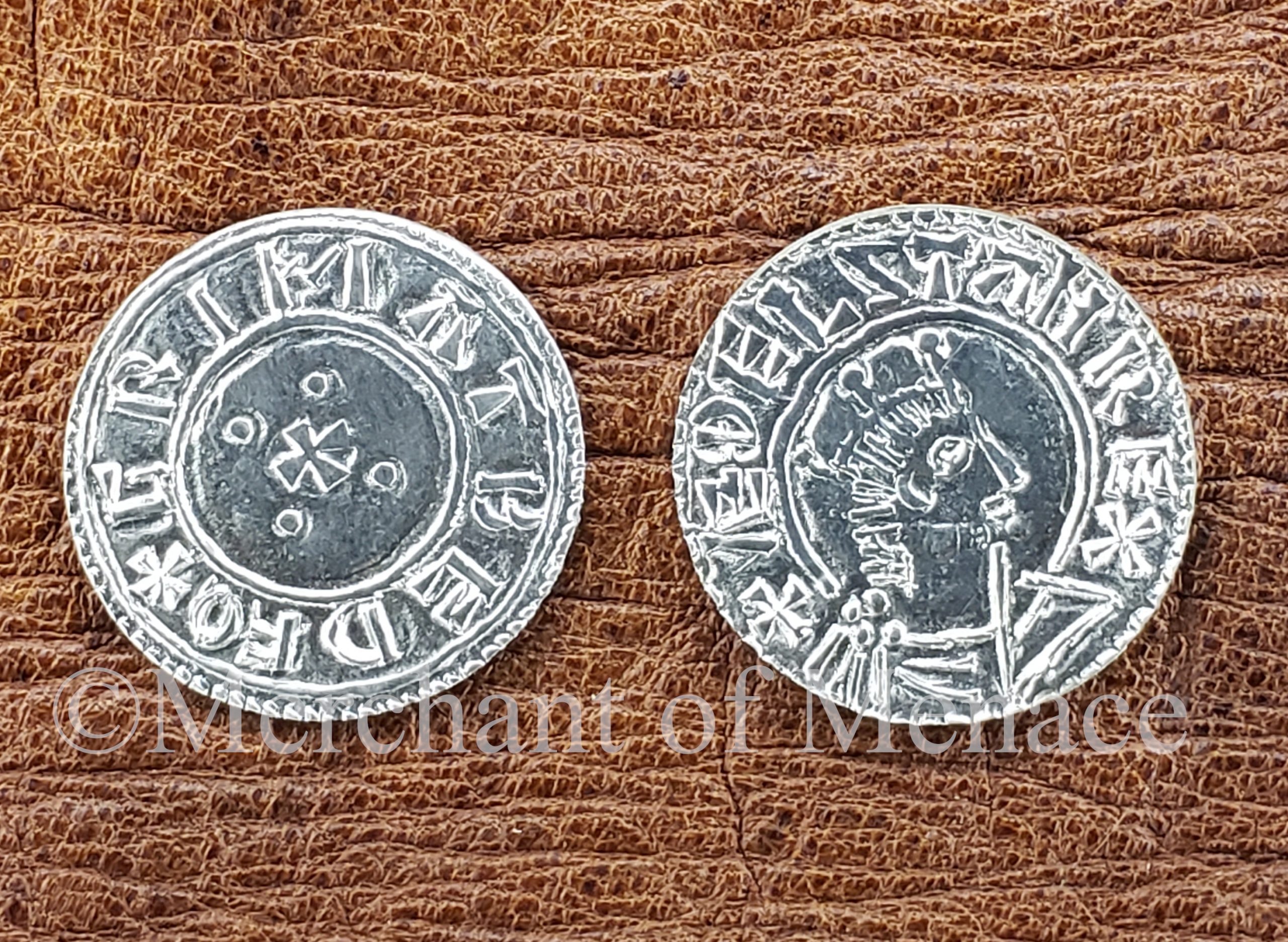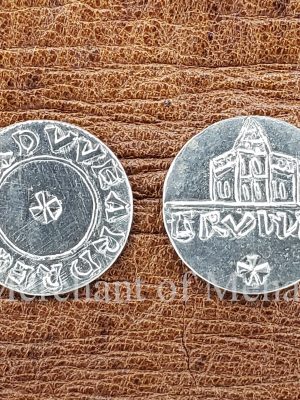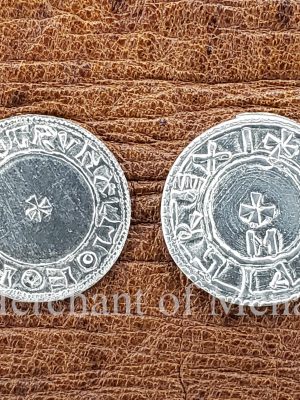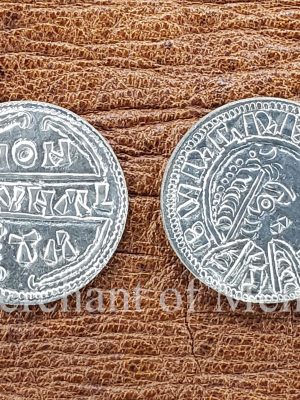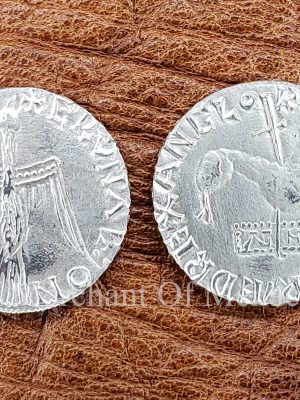Description
Wessex Penny (Saxon), Æthelstan, circa 924-939 AD
Provenance:
Coins of England & the United Kingdom, 44th edition, Spink, 2009, page 110 ref-1102
We are delighted to offer for sale these close copies of the original coin.
The Coin is hand struck with our own hand cut dies, The coin is available in either lead free English Pewter or Sterling Silver (925, 3.3 grams approx.)
These make a great addition to any pouch or Living history dice game, Suitable for all cultures of the period.
These coins are accepted for use within:
The Vikings (NFPS)
Regia Anglorum.
Many other Groups and Societies also accept these for use, if in doubt please check with your group/society Authenticity/Provenance Officer or refer to your kit Guides. If you would like to add your Group or Society to the above list please let us know
King Æthelstan, 924-939 AD
But what do we know about him?
Family.
Æthelstan or Athelstan (c. 894 – 27 October 939) was King of the Anglo-Saxons from 924 to 927 and King of the English from 927 to 939 when he died. He was the son of King Edward the Elder and his first wife, Ecgwynn. Modern historians regard him as the first King of England and one of the greatest Anglo-Saxon kings. He never married and had no children. He was succeeded by his half-brother, Edmund.
Life as King.
When Edward died in July 924, Æthelstan was accepted by the Mercians as king. His half-brother Ælfweard may have been recognised as king in Wessex but died within three weeks of their father’s death. Æthelstan encountered resistance in Wessex for several months and was not crowned until September 925. In 927 he conquered the last remaining Viking kingdom, York, making him the first Anglo-Saxon ruler of the whole of England. In 934 he invaded Scotland and forced Constantine II to submit to him, but Æthelstan’s rule was resented by the Scots and Vikings, and in 937 they invaded England. Æthelstan defeated them at the Battle of Brunanburh, a victory which gave him great prestige both in the British Isles and on the Continent. After his death in 939 the Vikings seized back control of York, and it was not finally reconquered until 954.
Æthelstan centralised government; he increased control over the production of charters and summoned leading figures from distant areas to his councils. These meetings were also attended by rulers from outside his territory, especially Welsh kings, who thus acknowledged his overlord ship. More legal texts survive from his reign than from any other 10th-century English king. They show his concern about widespread robberies, and the threat they posed to social order. His legal reforms built on those of his grandfather, Alfred the Great. Æthelstan was one of the most pious West Saxon kings, and was known for collecting relics and founding churches. His household was the centre of English learning during his reign, and it laid the foundation for the Benedictine monastic reform later in the century. No other West Saxon king played as important a role in European politics as Æthelstan, and he arranged the marriages of several of his sisters to continental rulers.

